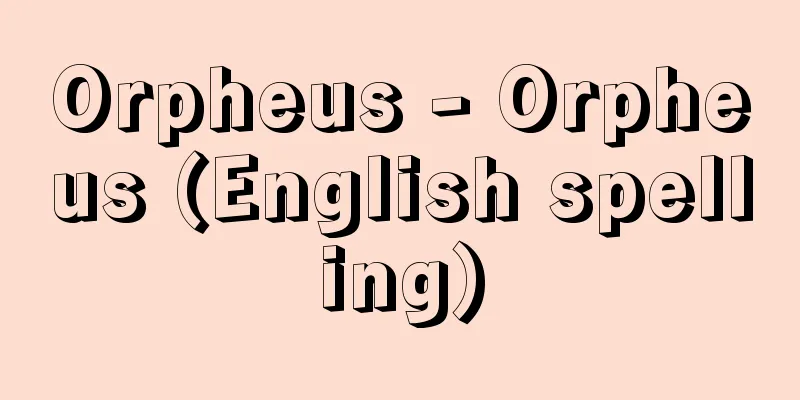〘Adjective〙 Fun 〘Adjective〙 A state of being comfortable, with desires and wishes fulfilled through a certain state or sustained action. 1. To be mentally and physically fulfilled and comfortable. Enjoyable. *Kojiki (712), Vol. 2, Folk Song "If I were to pick the linden leaves sown in Yamagata together with the people of Kibi, would I be able to enjoy it for a long time?" *Jizo Jyurin Sutra, Gangyo 7th Year Chapter (883), Vol. 4 "It is said that one can endure pain and become happy in body and mind . " 2. A state of being materially fulfilled and rich. To be wealthy. To be rich. ※Konjaku (around 1120) 29 "After that, I was in charge of the storehouse and knew the Omi area, and it was very enjoyable." ※Hiramatsu Family Hon Heike (before 13th century) 1 "Every month, I was sent 100 kan of grain, so my household was rich and had no end of happiness." ③ Crops are abundant. ※Okagami (before 12th century) 5 "Beans, chickweed, melons, eggplants, etc., are very enjoyable these days." [Essay] (1) In ancient times, the usage of ① expressing mental pleasure and a feeling of fullness is prominent. From the Insei period, ② meaning materially wealthy appeared, and in the Middle Ages, it also came to mean being financially satisfied, and is used as the opposite of "mazushi."
(2) It is the same as "ureshii" (happy) in that it expresses a pleasant feeling, but while "ureshii" is an expression that mainly shows a direct reaction at the time , " tanoshii " mainly expresses the continuation of such a feeling. Gaku [easy] 〘 noun 〙① Musical instruments used for playing music. Music or musical pieces used in ceremonies. ※Shoku Nihongi - Wadō 1st year (708) November Shinshi "A banquet for those of rank 5 or above in the inner hall , music from all directions played in the gardens." ※Genji (around 1001-14) Momijiga "The sound of the music was so loud that it was so interesting." ② Specifically Gagaku. Therefore, the biwa (lute) of Gagaku is called gakubiwa, the koto (Japanese harp ) is called gakukoto, and the drums are called gakutaiko. ※Utsubo (around 970-999) Sagain "At Ega, Yukimasa , at Gaku , Nakayori , there was no one to play with more than the local gamers." ③ In Noh, a dance that incorporates Bugaku techniques into the flute-based accompaniment, accompanied by a slow, exotic dance. It appears in pieces such as " Karafune ," " Kantan," and " Tobosaku ." *Toraakirahon Kyogen, Karasuzu (late Muromachi period - early modern period) "Sorekura ishaunugu uchi ni, ganari" 4. An interlude that incorporates gagaku techniques to create a gagaku feel using the koto, shamisen, etc. A similar interlude to the koto piece " Kogo" and the nagauta piece "Tsurukame." 5. A type of geza music in Kabuki. It uses large and small drums, noh flutes, or large drums and bells, and sometimes shamisen is added, and is used in scenes of palaces, shrines, and temples in period pieces, and in scenes where celestial maidens, Fudo, and Kannon appear. ※Kabuki: Shitenno Kaede Edo Makeup (1804) Sanritsu: "'What is this, Lord Takaaki?' 'A visit to the shrine?' 'Don't move, woman!' I'm sure he is deeply moved. It becomes a musical piece with shamisen ." Fun - Fun (The verb form of the adjective "tanoshii" (fun)) [1] [Independent Ma 5 (4)] To be in a state in which desires and wishes are fulfilled. ① To be content and at peace. To feel joyful. ※Shoki (720), February, Year 4 of Yūryaku (Tosho- ryō Honin ) "Finally, enjoying themselves together in the fields , they chased a deer." ② To become economically prosperous. ※Taike in Takano (early 13th century) 1 "The 100 koku 100 kan that was sent to them every month has now been retained, and for the first time, those who are related to Butsu - gozen are enjoying themselves and prospering." [2] [Ta Ma 5 (4)] ① (Often in the form "enjoy ...") To feel contentment in or in that state. ※Hokshinshu (around 1216), preface: "Among the slanderous chatter by the roadside, I have only one thought of 'Is it only for the enjoyment of my aspirations ? '"② To make the mind comfortable by a certain sustained action. Also, to perform a certain action while being satisfied. ※Kabuki, Sukeroku Kuruwa Yozakura (1779), "I wonder if Sukeroku and Agemaki-sama are enjoying their relationship to this day?"③ To fill the mind with hope by placing expectations on the future. ※Wa-Ei Rin-Shusei (First Edition) (1867), " Tanoshinde Matsu" [3] [Other Ma Lower 2] To make something enjoyable. ※Myo-Ippon Kana-Gaki Hoke-kyo (Middle Kamakura) 2: "Seeing that he has made the sentient beings widely prosperous ( 〈note〉Tanoshime)" Easy [easy] 〘Noun〙① (adjective) A state of being free from pain and suffering in body and mind, free from rest and frustration, and peaceful and happy. Something that is pleasant. Also, the state of being so. Comfortable. ※Hyakuza-hodan (1110), June 19th "Afterwards, a man came, shining forth light from his body, and shining forth on the other hand, enjoying ease . His life was as long as that of the heavens, and it lasted for countless years." ② To like. To love. ※Tsurezuregusa (around 1331), 242 "Ease is this and that which one loves. There is no time to stop seeking it." ③ (adjective) Something that is easy. Something that is simple. Or, having a good livelihood. Also, the state of being so. ※Shiba Shinga (1792) "Rakuna Yasuki" ※Trade Questions and Answers (1869)〈Kato Hiroyuki〉 vol. 1 "It can be pounded easily in just half an hour or an hour." ④ Abbreviation of "Raku-yaki (Raku ware)". ※Genryu Chawa (around 1715-16) vol. 1 "There are no cups on the tea bowl.〈Abbreviation〉Japanese ware includes Seto, Hakuan, Karatsu and Raku varieties." ⑤ (Abbreviation of "Senshuraku") The final performance of a play. By extension, the end of something. ※Tosei Shosei Kishitetsu (Tosei Shosei Kishitetsu) (1885-86)〈Tsubouchi Shoyo〉 vol. 1 "Teacher, let's bring this game of tag to an end now." Fun [easy] 〘 noun 〙 (the noun form of the verb "enjoy" (to have fun)) 1. A feeling of being satisfied and comfortable in body and mind. Also, that state. Pleasure. Joy. ※Kanchiin Hon Sanbo-e (984) lower part "My wishful mind yearns for the pleasures of that land, whether awake or asleep." 2. To look forward to it coming true in the future. ※Joruri Ehon Taiko-ki (1799) 10th day " Bravo, you have achieved great fame. The look of a broad smile on his face as he looks forward to being praised by his father and grandmother." Fun - Fun 〘Automatic Ba 4〙 = enjoy (fun) ※Saidaiji Konkomyo Saishookyo, early Heian period (around 830), 10 "We went into the forest together and played and enjoyed ourselves together . " ※Tsurezuregusa (around 1331), 129 "The joy, anger, sadness and enjoyment of a quiet person are all false." [Additional note] Generally, in ancient times, adjectives turned into verbs were often conjugated in the Ba row, upper two-step, but there are no clear examples of this being the case for "tanoshibu." Fun [easy] 〘Noun〙 (The noun form of the verb “Tanoshibu (fun)”) = Tanoshimi (fun) ※Shoki (720), Buretsu 4th year, April (Tosho-ryo Honin) “It is a pleasure to cut down the base of a tree and send those who climb up to their deaths. ” ※Kokin (905-914), Kana preface “Even if time changes, and the journey is filled with joy and sadness, is there still a word for this song?” Tanushi [easy] (In Man'yōgana, the characters "怒" and "勉", which are currently considered to be of the first class of "ノ", were read as "ぬ" in early modern Man'yōgana.) = Fun (easy) ※Ryokan's poem (around 1835) "It must be a joyous thing to join hands with the children and pick young leaves in the spring rain." Gaku-su [easy] 〘Independent verb〙 To play music. ※Utsubo (around 970-999) Rojo: "From the flat brocade of the western side, the drums are played, and the music is played quietly and gently." Fun [easy] 〘Formal expression〙 ⇒ Fun (easy) Source: The Selected Edition of the Japanese Language Dictionary About the Selected Edition of the Japanese Language Dictionary Information |










